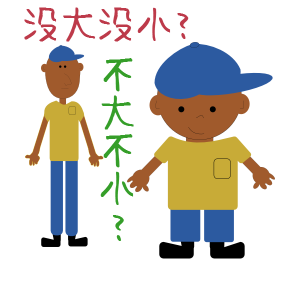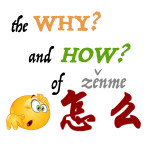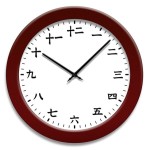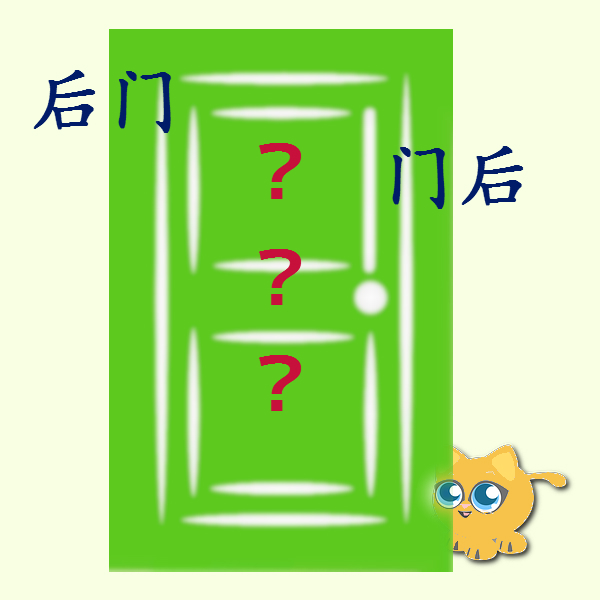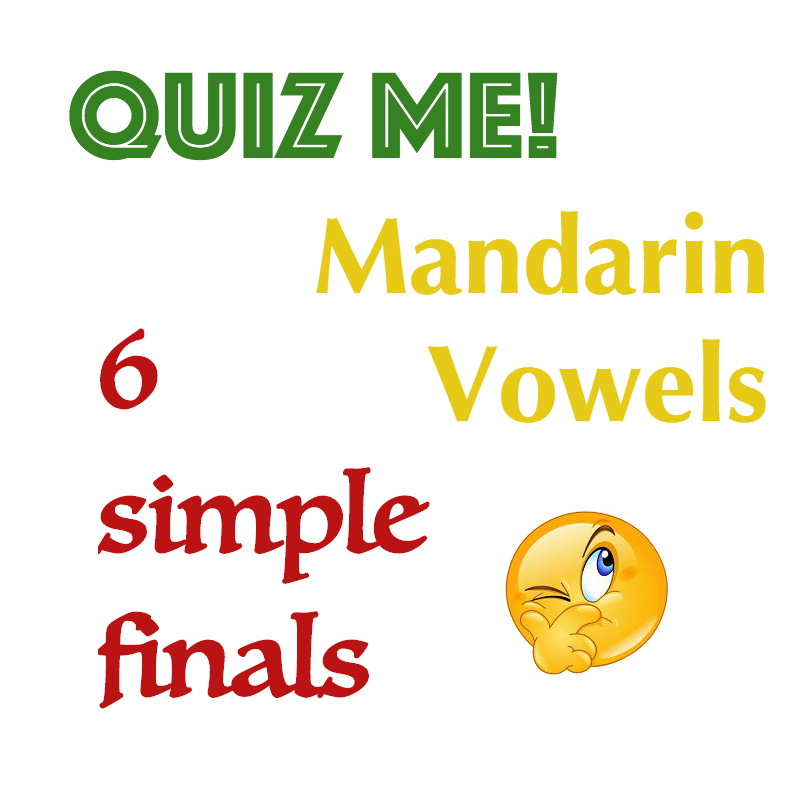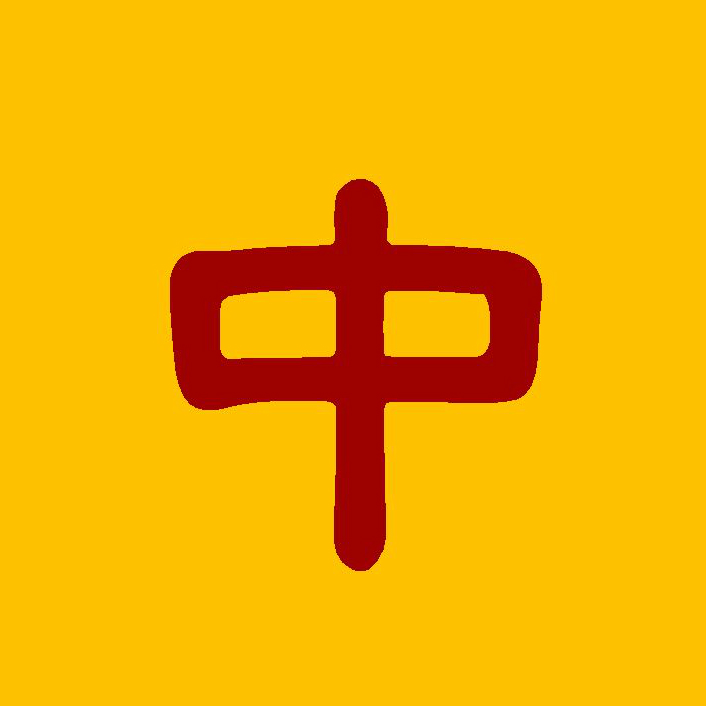Just nice, or no manners? 不大不小 vs 没大没小
Here’s a little prelude to the upcoming Mandarin Weekly video.
Have you heard of these two expressions?
1) 不大不小 bú dà bù xiǎo
2) 没大没小 méi dà méi xiǎo
If you’ve learnt a little Mandarin, you probably know that 不 means not ~. So if we have 不+大+不+小 – it literally means not big not small – and therefore, just nice! This is the charm of Mandarin – what you see is what you get! Ok, I admit that this is an overly simplistic claim, but honestly, Mandarin is pretty straightforward.
不A不B
This is a very useful structure – something is in the middle, neither A nor B. The conclusion could be either positive or negative. If positive, take it to mean it’s neither too A nor too B, and therefore, it’s just nice. If negative – then it means it isn’t fully A nor fully B, it’s neither here nor there.
Let’s look at a few other examples so that you get the hang of this.
不多不少 bù duō bù shǎo – not a lot, not a little
不长不短 bù cháng bù duǎn – not long, not short
不早不晚 bù zǎo bù wǎn– not early, not late
不胖不瘦 bú pàng bú shòu – not fat, not thin
They are often used positively, and therefore the phrase ‘刚刚好’ (gānggāng hǎo) or ‘正好’ (zhèng hǎo) – just nice, fits in perfectly at the end.
Now let’s move on to the other expression 没大没小 méi dà méi xiǎo . You might also have learnt this other frequently used negative – 没. And you probably also know that these two are used differently. So naturally, 没大没小 must mean something different from 不大不小.
First, the structure:
没A没B
This is used to express someone’s disability to discriminate between what is proper and improper.
Here, 大 and 小 don’t mean size. They mean age. For example, we have these phrases:
年纪大 niánjì dà – old (literally, age big)
年纪小 niánjì xiǎo – young (literally, age small)
In Chinese society, hierarchy is important. The young are expected to show respect to people older or of higher status than them. So if you act in an inappropriate manner, you might be acting 没大没小 – no big no small.
How do we use it? For example,
Jiàndào shūshu zěnme bú jiào? Méi dà méi xiǎo!
见到叔叔怎么不叫?没大没小!
Why aren’t you greeting uncle? Show some respect!
(Note:叔叔 shūshu doesn’t have to really be your uncle, this is just a polite form of address we use for any male belonging to your father’s generation, but slightly younger than your father.)
Bié méi dà méi xiǎo, dàren shuō huà xiǎoháizi bié chā zuǐ.
别没大没小,大人说话小孩子别插嘴。
Know your place, don’t butt in when adults are talking.
Xiànzài de háizi zěnme dōu zhème méi dà méi xiǎo?
现在的孩子怎么都这么没大没小?
Why are kids nowadays so disrespectful towards their elders?
Another similar example is 没轻没重 méi qīng méi zhòng (literally, no light no heavy) and it is used to mean being tactless and having bad manners. For example,
Zhè rén shuō huà méi qīng méi zhòng, chángcháng dézuì rén.
这人说话没轻没重,常常得罪人。
This guy is quite tactless in speech; he keeps pissing people off.
Before we end off, I have to let you know that 不A不B and 没A没B have other meanings too. Let’s first look at 不A不B.
不A不B
This structure is used to emphasise the negative aspect of whatever A and B mean.
不闻不问 bù wén bú wèn – to be indifferent (not listen, not ask)
不言不语 bù yán bù yǔ – to remain quiet (not talk; both 言 and 语 mean ‘to talk’)
不离不弃 bù lí bú qì – to never leave someone, to stay with someone through thick and thin (not leave, not abandon)
不眠不休 bù mián bù xiū – without rest, tirelessly (not sleep, not rest)
不知不觉 bù zhī bù jué – without knowing, before you know it (not know, not aware)
不A不B
This is probably one of those times when Mandarin gets a little hard to decipher for foreigners – it’s simply too condensed. This structure actually means ‘if A doesn’t happen, B doesn’t happen’. We could lengthen it to ‘如果不A,就不B’ rúguǒ bù A jiù bù B, literally, ‘if not A, then not B’, but well, why make it so long?
Anyway, let’s look at some examples:
不醉不归 bú zuì bù guī – drink to our hearts’ content (if we don’t get drunk, we don’t go home)
不吐不快 bù tǔ bú kuài– used when there’s something you simply have to get off your chest (if I don’t say it, I don’t feel satisfied)
不见不散 bú jiàn bú sàn – used in replacement for goodbye, when you’re going to meet the person at a scheduled time (if we don’t see each other, we don’t leave the meeting place)
没A没B
This is used for emphasis.
没日没夜 méi rì méi yè – tirelessly, round the clock (no day no night)
没完没了 méi wán méi liǎo – endless (both 完 and 了 mean ‘end’; note that here, 了 is ‘liǎo’, not ‘le’)
没头没脑 méi tóu méi nǎo – absent-minded (no head no brain)
Ok, that’s about it for now, I shan’t 没完没了地说 méi wán méi liǎo de shuō – talk endlessly.
See you in the next post, or in my video! 不见不散 bú jiàn bú sàn!
If you’ve enjoyed this, don’t forget to hit one of the sharing buttons below, and do join me on Google+/ Facebook/ Youtube/ Twitter/ Pinterest !
